Bring back the geniuses
Since the Enlightenment we’ve celebrated the ‘visionary’… but technology has made the need for a genius almost obsolete.
Here’s why that’s a bad thing.
Steve Jobs, eh? What a genius. It’s not surprising, then, that he would encourage us to gift the world to other geniuses. In 1997 (before he changed the world a few more times with the iPod, iPhone, and iPad) he said:
‘“Here's to the crazy ones. The misfits. The rebels. The troublemakers. The round pegs in the square holes. The ones who see things differently. They're not fond of rules. And they have no respect for the status quo. You can quote them, disagree with them, glorify or vilify them. About the only thing you can't do is ignore them. Because they change things. They push the human race forward. And while some may see them as the crazy ones, we see genius. Because the people who are crazy enough to think they can change the world, are the ones who do.”
The idea of a creative genius has been around for a long time. Since the Renaissance, in fact, when we crawled out of the Middle Ages to the Modern Age and sparked a revival in classic Greek and Roman philosophy. It was an age of reason that put Man at the centre of everything, and paved the way for incredible scientific, artistic, and technological achievements. And somewhere in all that the idea of ‘genius’ came to embody a person. Da Vinci? Genius. Galileo, Francis Bacon, Rembrandt? All geniuses.
Fast forward to the creative industries in the 20th century, and this concept of the genius was still very much a thing. From the ad industry titans like Bill Bernbach, John Webster, or Saul Bass; cinema geniuses like Disney, Welles, Kubrick, Spielberg; and legendary TV producers like Gene Roddenberry. Geniuses are everywhere in the creative world, because creativity requires a human touch. Right?
Well, not any more.
Now we have shifted from the age of the visionary to the age of the algorithm. The biggest films are no longer selected by Hollywood producers looking for individual sparks of magic in the pile of submissions. Today filming is governed by how well it will play in the box office, by focus group testing, by Netflix’s recommendation system. Marketing spend is funnelled to the ‘dead-cert’ releases, filling our cinemas with reruns, remakes, sequels and superheroes.
“Courtroom dramas, all that stuff, they can’t get made,” actor Matt Damon said in an interview last year. “You want the most accessible thing you can make, in terms of language and culture. And what is that? A superhero movie.”
TV shows have been cancelled despite critical success and a loyal fanbase (like The Peripheral, WestWorld, Lockwood & Co, and Cobra Kai) because the algorithm deems the return not worth the expense. The top 20 bestselling books of last year included six recipe books, three celebrity autobiographies and four books written by two long-established authors (Richard Osman, Colleen Hoover). Only one debut (Lessons in Chemistry) made it into the top ten, and has since been made into a TV series on Apple TV… in part because it brings a guaranteed audience with it.
And in advertising, which has been hardest hit by this phenomenon over the last decade, the idea of a singular genius creating a bold and innovative campaign are long gone. Awards from Cannes Lions to D&AD are judged on impact, ROI, and numbers of likes or shares rather than on any creative merit or innovation, and the industry has followed sheep-like into the age of big data.
The Superbowl has long been mecca of creative advertising: a guaranteed 110 million audience and a rivalry amongst advertisers to make the best ad possible has given us incredible ads like Apple’s 1984 by Ridley Scott, and Always’ pioneering #LikeAGirl. Today the risk is mitigated: brands release the ads two weeks early to ‘test’ the reaction, so that by the time Superbowl night arrives nothing is a surprise any more.
It seems everyone is afraid of being a genius.
In some ways this is a very good thing. We can’t allow the cult of genius to blind us to potential harm. After all, it was only the immense power and sway that Harvey Weinstein had to make or break careers that silenced so many women for so long. It was a similar story too for Russell Brand, and for Jeffrey Epstein, and Jimmy Savile and Bill Cosby.
That was yesterday’s ‘genius’ – balanced entirely around a toxic male ego – and we’re glad to see the back of it. But at the same time, we believe that there must be room for creative expression that goes beyond the algorithm. It’s no surprise that more modern geniuses: like JK Rowling, Phoebe Waller-Bridge, Oprah – are more likely to be women. And outside of the creative industries too: a new wave of visionary includes the likes of Greta Thunberg and Malala Yousafzai.
At Thrive we meet creatives with the potential for genius every week: people bursting with ideas and enthusiasm. People crazy enough to think that they can change the world. Our hope is that they find a space in the industry where they can work alongside the big data, the AI, the algorithm, where they can be informed by it rather than governed by it, and still get a chance to imprint their genius into film, TV, theatre, advertising, and the arts.
Otherwise we will have peaked at Steve Jobs, and the machines he pioneered will have already won.
